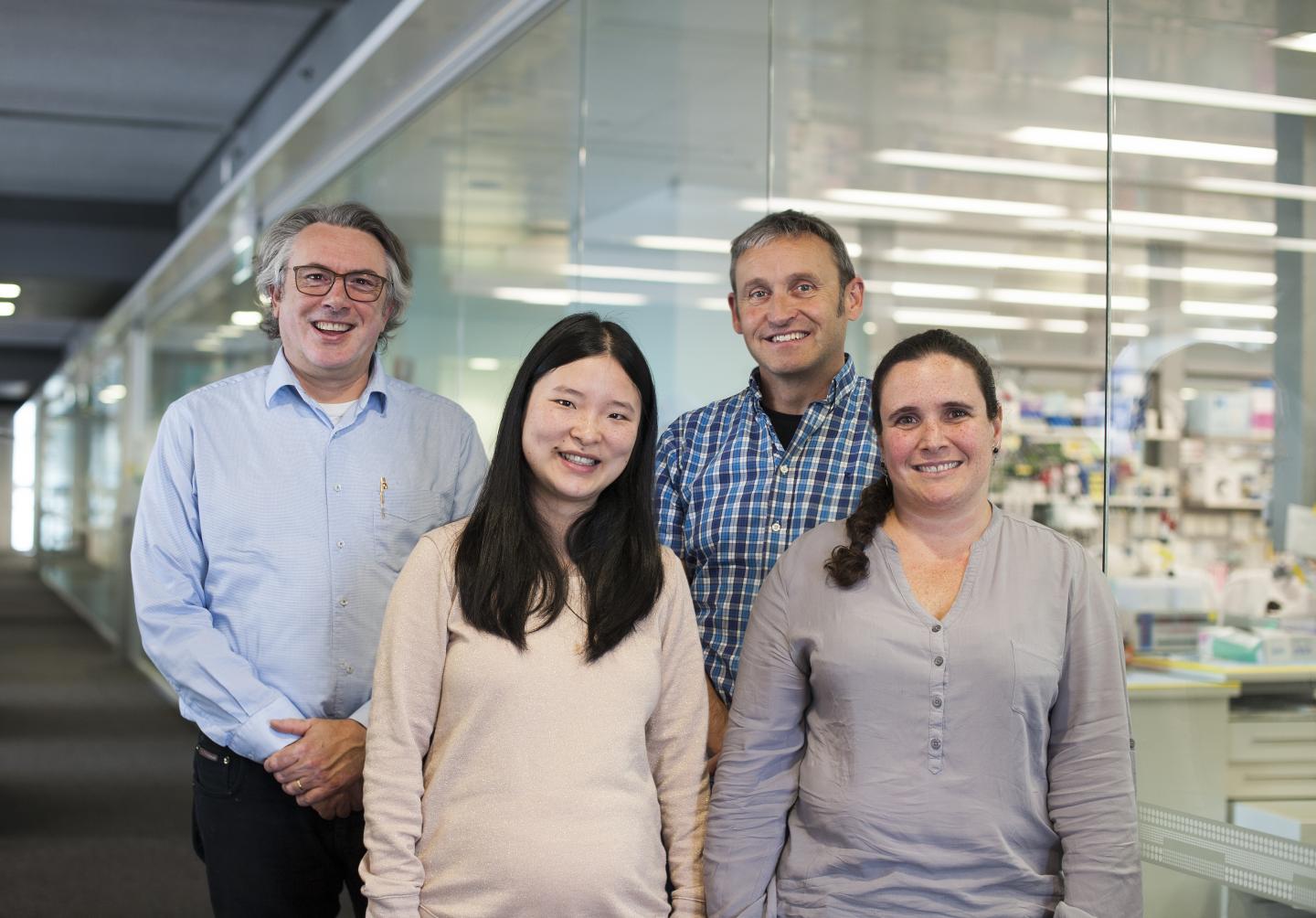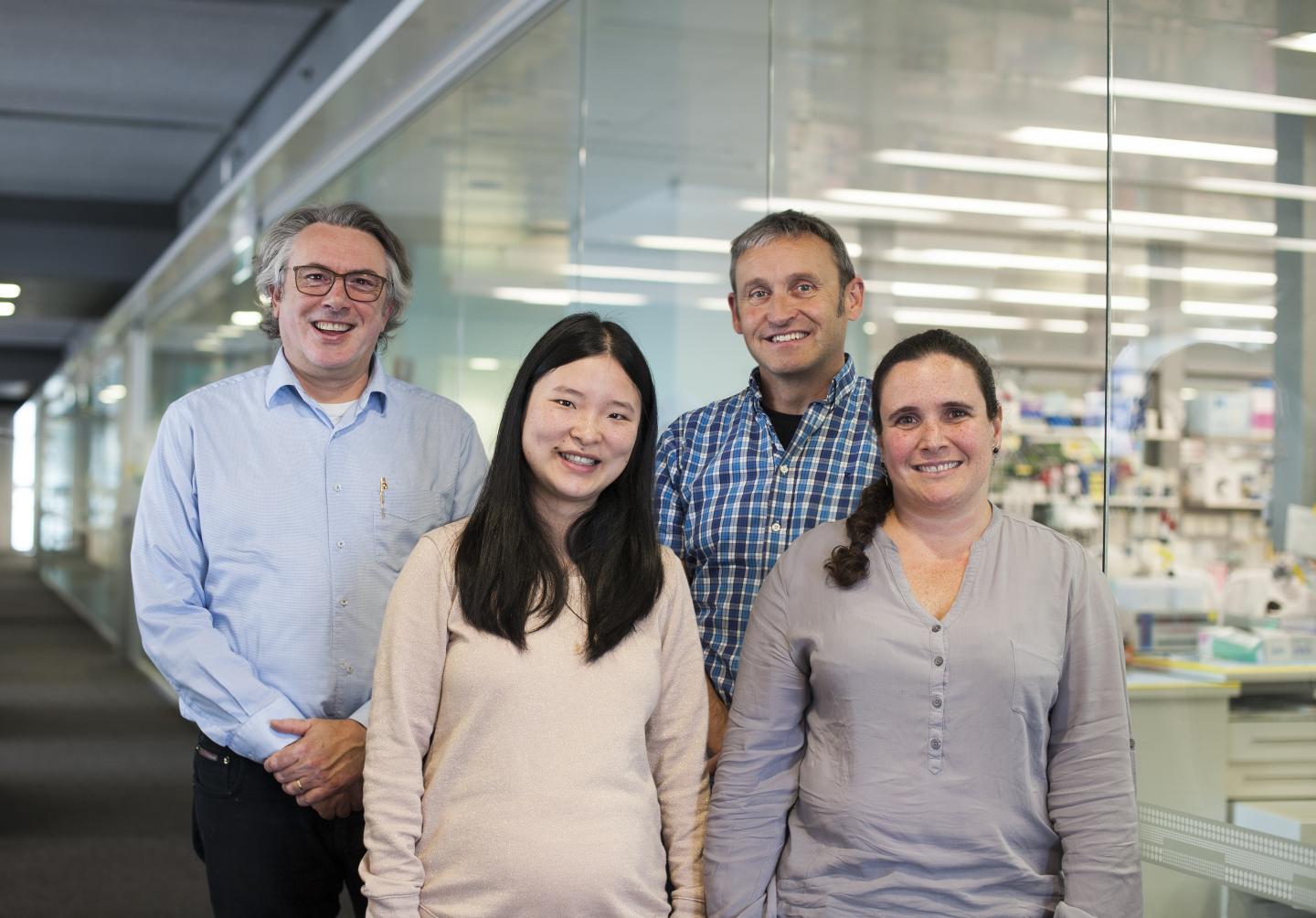
Patients with acute myeloid leukaemia (AML) can look forward to the development of new therapies following the discovery by Walter and Eliza Hall Institute researchers of a new way to kill cells that are dangerously multiplying.
A process known as apoptosis (programmed cell death) — which is a natural and necessary response to keep the proliferation of human cells in check — is interrupted in cancers, including AML, leading to unchecked cell growth.
Institute researcher Dr Gabriela Brumatti and her PhD student Chunyan Ma are part of a team, led by Professor John Silke from the Institute and Professor Paul Ekert from the Murdoch Childrens Research Institute in Melbourne, investigating ways to target particular types of AML, hoping to increase the chance of a cure for the patient while limiting damage to healthy cells.
Dr Brumatti said traditional chemotherapies, which induce apoptosis, had a high relapse rate. For example, within five years of completing treatment 50 per cent of AML patients suffer a relapse of their cancer. Of those who relapse, only 50 per cent survive.
Her team tried a ‘blue sky’ approach to their research and inhibited apoptosis of AML cells in order to unleash an alternative form of cell death called necroptosis. They found this necroptosis cell death pathway was more effective at killing AML than apoptosis. These findings have just been published in the research journal, Science Translational Medicine.
In preclinical trials they used a combination of drugs — birinapant, a new anti-cancer drug, and emricasan, a US Food and Drug Administration (FDA) approved inhibitor of apoptosis — to kill AML.
“It has been speculated that inducing necroptosis might be an effective way to kill cancer cells”, said Professor Silke. “Our work now demonstrates clearly it is a clinically feasible and safe approach.”
Dr Brumatti said since cancer cells often acquire resistance to traditional chemotherapy-induced apoptosis, this novel type of chemotherapy had the potential to be used to treat otherwise impossible to treat leukaemias.
###
This work was supported by a grant from the Leukemia & Lymphoma Society, the National Health and Medical Research Council (NHMRC), and an Association pour le Recherche contre le Cancer (ARC) fellowship with additional support from the Australian Cancer Research Foundation, the Victorian State Government Operational Infrastructure Support, and the NHMRC Independent Research Institutes Infrastructure Support Scheme.
Media Contact
Ebru Yaman
[email protected]
042-803-4089
@WEHI_research
The post New drug combination shows promise for resistant leukaemia appeared first on Scienmag.





